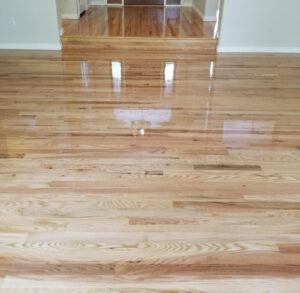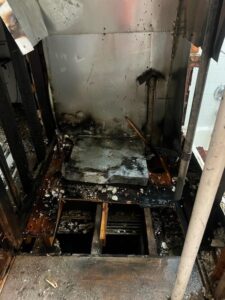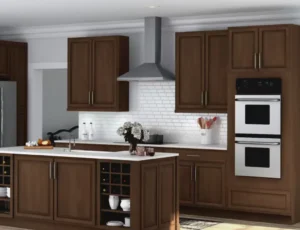Collecting rare coins can be an exciting and rewarding hobby, whether you’re chasing down elusive rare cents or building a collection of historical pieces from around the world. But if you’re serious about investing in rare coins, finding a trusted rare coin dealer is crucial. A reputable dealer can help you navigate the complex world of coin collecting, ensure you’re buying genuine coins, and help you get a fair price for the coins you’re selling.
Table of Contents
Collecting rare coins can be an exciting and rewarding hobby, whether you’re chasing down elusive rare cents or building a collection of historical pieces from around the world. But if you’re serious about investing in rare coins, finding a trusted rare coin dealer is crucial. A reputable dealer can help you navigate the complex world of coin collecting, ensure you’re buying genuine coins, and help you get a fair price for the coins you’re selling.
In this article, we’ll explore how to find a trusted rare coin dealer, what to look for, and actionable tips to help you make smart buying or selling decisions.
Why You Need a Trusted Rare Coin Dealer
Whether you’re a seasoned coin collector or new to the hobby, working with a trusted rare coin dealer is essential for several reasons:
- Authenticity: A reputable dealer can provide assurance that the coins you’re buying are authentic, helping you avoid fakes and forgeries.
- Fair Pricing: Trusted dealers will offer fair prices, whether you’re buying rare coins for your collection or selling coins you already own.
- Expert Knowledge: Good dealers have deep knowledge of the coin market and can help you make informed decisions. This is especially important when dealing with rare coins or rare cents, where value can vary significantly based on condition, rarity, and demand.
But how do you know if a dealer is trustworthy? Here are some tips to help you find the right one.
1. Look for Professional Certifications and Affiliations
The best way to start your search for a trusted rare coin dealer is to check for professional certifications and memberships in recognized organizations. These affiliations help guarantee that the dealer follows industry standards and ethical guidelines.
- American Numismatic Association (ANA): Dealers who are members of the ANA are expected to follow a strict code of ethics. Membership in the ANA signals that the dealer is reputable and committed to fair dealings.
- Professional Numismatists Guild (PNG): The PNG is another well-respected organization that requires its members to adhere to a high ethical standard. Dealers who are part of this guild are often more reliable and knowledgeable.
- Certification by Grading Services: Trusted rare coin dealers often use third-party grading services like the Professional Coin Grading Service (PCGS) or Numismatic Guaranty Corporation (NGC) to authenticate and grade the coins they sell. Coins graded by these services come with a certificate of authenticity, which can provide peace of mind for buyers.
These credentials give you a solid foundation of trust and transparency, making it easier to buy or sell rare coins with confidence.
2. Read Customer Reviews and Testimonials
One of the simplest ways to evaluate whether a rare coin dealer is trustworthy is by reading customer reviews and testimonials. Look for feedback from other coin collectors or buyers who have worked with the dealer in the past.
- Online Reviews: Check for reviews on platforms like Google, Yelp, or coin-collecting forums. Look for consistent positive feedback, but also pay attention to how the dealer responds to any negative reviews. A professional dealer will address complaints respectfully and work to resolve issues.
- Ask for References: If you’re working with a dealer directly, don’t be afraid to ask for references from previous customers. A reputable dealer should be happy to provide references to prove their legitimacy and trustworthiness.
For example, if you’re looking to buy or sell rare cents, find reviews from customers who have bought or sold similar coins. This will give you a better sense of how knowledgeable and reliable the dealer is when dealing with specific coin types.
3. Verify Pricing and Compare Offers
Pricing in the rare coin world can be tricky, especially with rare cents and other high-value coins. To ensure you’re getting a fair deal, it’s important to verify pricing and compare offers from multiple sources.
- Use Price Guides: Several coin price guides, such as the “Red Book” or online resources, provide estimated values for different coins based on their condition and rarity. Check these guides to get a general sense of what your coins are worth before you engage with a dealer.
- Get Multiple Quotes: Don’t settle for the first price you’re offered when selling your coins. Contact multiple trusted rare coin dealers to get quotes and compare offers. This will help you gauge whether a dealer is offering a fair price or lowballing you.
For example, if you’re selling rare cents, one dealer might offer you significantly less than others. If that’s the case, it’s a red flag that the dealer may not be offering you a fair deal. On the flip side, if one dealer is offering far more than others, it could be too good to be true, and further investigation might be needed.
4. Look for a Dealer Who Specializes in Your Type of Coins
Coin collecting covers a broad range of interests, from ancient coins to modern-day rarities. If you’re looking to buy or sell a specific type of coin—such as rare cents—it’s a good idea to work with a dealer who specializes in that area.
Specialized dealers often have deeper knowledge about the specific coins you’re interested in and can offer more accurate assessments of their value. For example, if you’re looking to buy a rare 1793 Chain Cent or a 1909-S VDB Lincoln cent, a dealer who specializes in rare cents will likely have more expertise in pricing and authenticating these types of coins.
5. Ask for a Written Agreement
When dealing with high-value coins, it’s essential to get everything in writing. A trustworthy dealer will have no issue providing a written agreement that outlines the terms of your transaction.
- Sales Agreement: When buying, make sure the dealer provides a clear, written sales agreement that includes the coin’s description, grade, price, and any guarantees of authenticity.
- Consignment Agreement: If you’re selling your coins through consignment, ensure that the dealer gives you a written consignment agreement. This should detail the terms, including commission rates, how long the dealer will hold the coins, and what happens if the coins don’t sell.
These agreements protect both the buyer and seller and add another layer of trust to the transaction.
6. Consider the Dealer’s Transparency and Communication
A trusted rare coin dealer will be transparent in their dealings and communicate openly with you throughout the buying or selling process. Watch for signs of clear and honest communication:
- Answering Questions: A good dealer should be willing to answer any questions you have about the coins, their history, condition, and pricing.
- Providing Documentation: If the dealer offers a certificate of authenticity or professional grading information, they should be able to provide documentation without hesitation.
If a dealer seems evasive or unwilling to provide clear answers, it’s a warning sign that they may not be fully trustworthy.
Final Thoughts on Finding a Trusted Rare Coin Dealer
Finding a trusted rare coin dealer is essential for anyone looking to buy or sell rare coins, whether it’s rare cents or other valuable pieces. By focusing on professional affiliations, checking reviews, comparing pricing, and looking for transparent communication, you can confidently navigate the world of rare coins and avoid common pitfalls.
Whether you’re building a collection or cashing in on your rare coins, working with a reliable dealer will ensure a smooth and successful experience. Happy collecting!





More Stories
Great Expectations Floor Restoration Boise: Bringing Your Hardwood Floors Back to Life
On-Site Public Insurance Claims Adjuster Los Angeles: Why Local Expertise Makes All the Difference
Renovate Builders Remodeling Seattle: Transforming Homes with Expert Craftsmanship